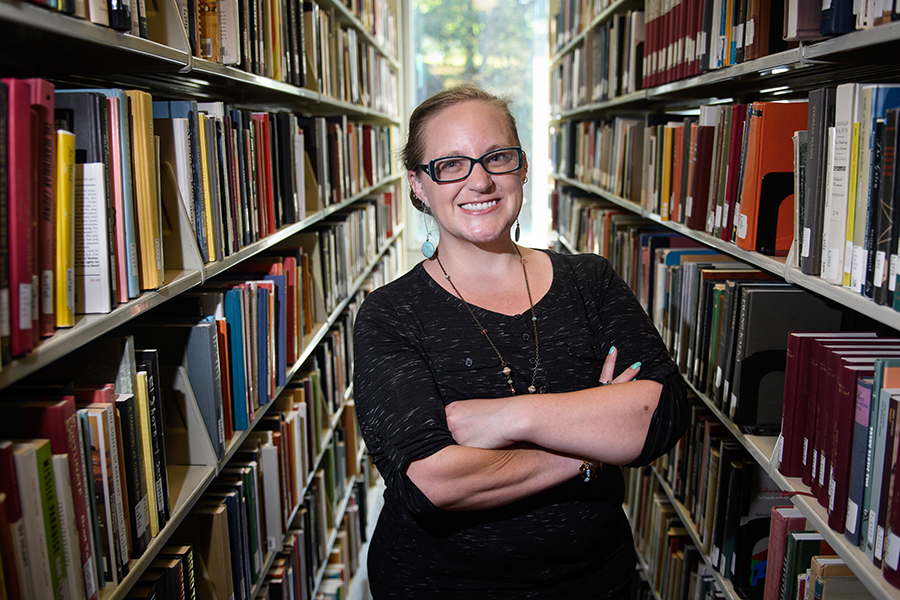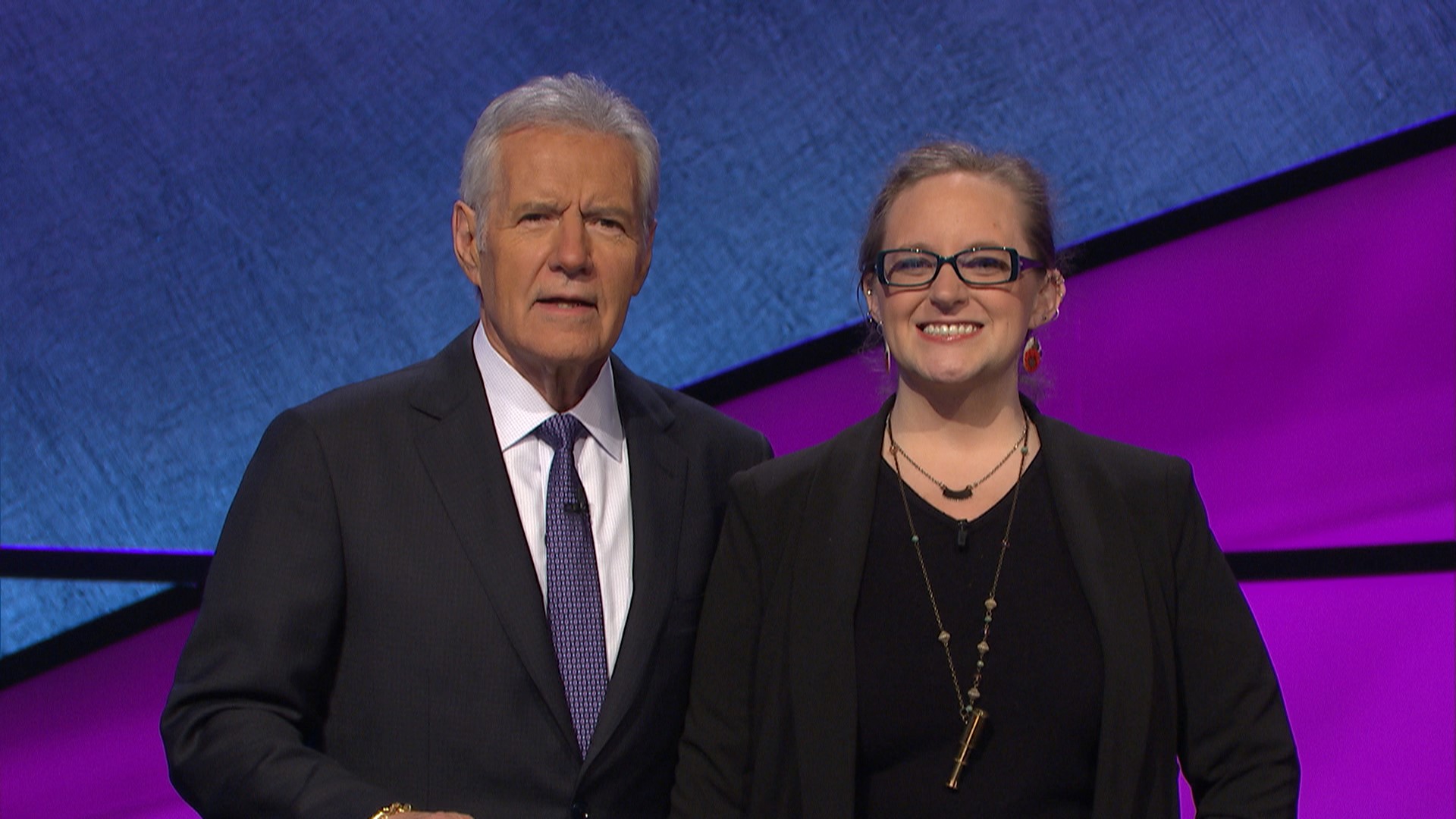
“Jeopardy!” CMU Champions for $600, Alex
A: This CMU alumna will appear on the upcoming “Jeopardy!” Tournament of Champions. Q: Who is Lindsey Shultz?
By Amanda S.F. Hartle
Alumna Lindsey Shultz (CMU 2004) admits that after spending four years among the bagpipes, tartan and Scottie dogs of Carnegie Mellon University, it’s ironic the Final Jeopardy question that ended her four-day run focused on Scottish history.
The surname of Bonnie Prince Charlie’s brother may not be at the front of her brain, but that didn’t stop her from winning more than $100,000 over four episodes in March. Now, she’s returning to the “Jeopardy!” stage for the game show’s Tournament of Champions in November.
“I was stoked. The feeling of getting to do it all over again, it was amazing,” Lindsey says. “The first time you go in you have no idea what to expect. The second time, it’s like being an alum visiting a university. You know the people. You know the community.”
Every “Jeopardy!” contestant preps for the show in their own way, and Lindsey relied heavily on podcasts to round out her knowledge in areas outside her wheelhouse of best-selling books to topics such as classical music and composers.

She habitually wears headphones — a habit she picked up living in New York City for more than a decade after completing her medical degree at Cornell University and master’s degree in public health at Columbia University.
“I’d often be walking or biking along a trail, just chilling out and listening to an explanation of what was going on in Verdi’s life when he composed ‘Rigoletto.’ I also paid attention to the newspaper and did crosswords,” she says.
Her ability to connect unlikely items and learn from them helped her in “Jeopardy!” and was solidified during her undergraduate years.
“When I was at CMU, I was better at making bigger connections and looking at a macro scale,” Lindsey reflects. “The experiences and coursework I had there helped to solidify that in me and prepared me to take in the world.”
Right now, she works to change the world as a “physician who does not practice” by researching harm reduction and health policy. She focuses on promoting the need for safe needle exchanges and injection rooms as well as how to build upon and improve the Affordable Care Act.
This, too, relates back to Lindsey’s days at Carnegie Mellon when she took a medicine history course with then Associate Professor Carolyn Acker. During her gap year between college graduation and medical school, Lindsey worked for Prevention Point Pittsburgh, one of the nation’s first needle exchanges, which was founded in part by Acker.
“When I was at CMU, I was better at making bigger connections and looking at a macro scale. The experiences and coursework I had there helped to solidify that in me and prepared me to take in the world.”
“I came into CMU thinking I was going to be pre-med. As I went forward, I saw there were so many other areas that were appealing to me and so many things outside of the clinician’s office,” Lindsey recalls.
She enrolled in the Science and Humanities Scholars program, a joint effort that exposed her to courses in Mellon College of Science for her biological sciences degree and the Dietrich College for her ethics history and public policy degree. The combination of 14-hour-a-week labs with anthropology and programming fine-tuned her science skills as well as her problem-solving abilities.
“You earned your GPA here. You’re in the trenches doing the science, the programming. It isn’t an overview. It worked for me. The idea of algorithmic thinking goes into my work every day now,” she says.
Where does she go from here — now that she is well aware that the surname of the so-called King Henry IX of England was Stuart?
“Being up on that stage is great, but being up there in a question is the next goal. That’s how you know you made it in America – being a “Jeopardy!” question,” Lindsey laughs.